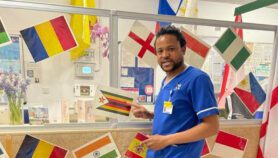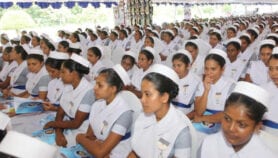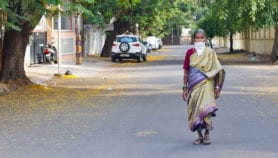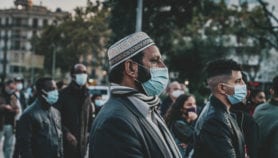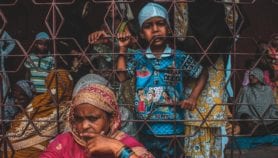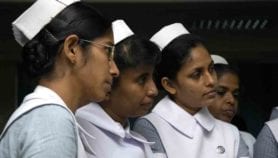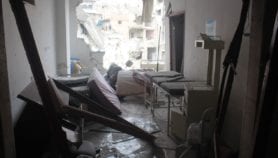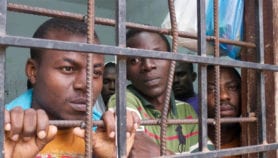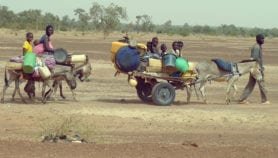08/04/20
Refugees face double coronavirus emergency
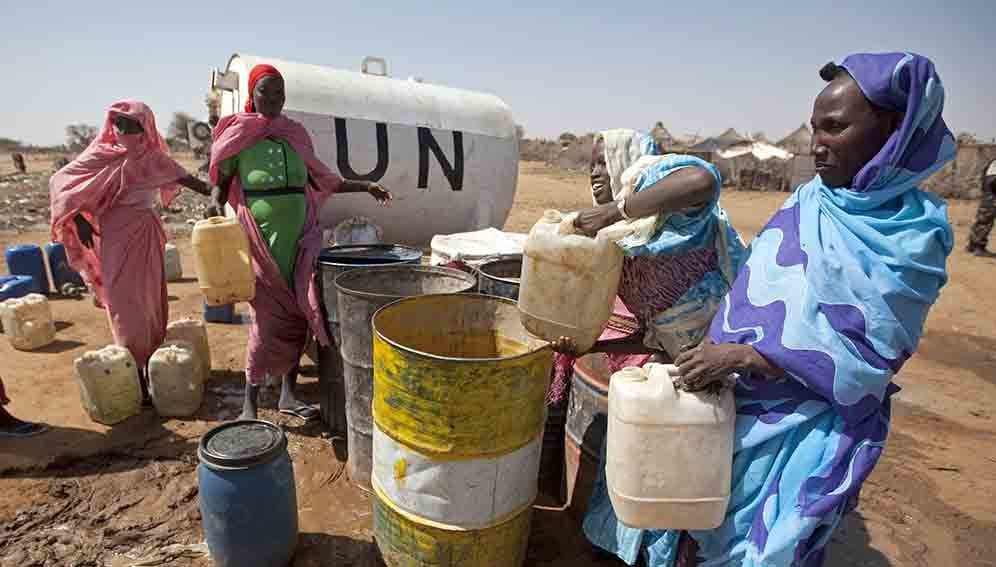
By: Gareth Willmer
Send to a friend
The details you provide on this page will not be used to send unsolicited email, and will not be sold to a 3rd party. See privacy policy.
The novel coronavirus will disproportionately impact the world’s 70 million displaced people as it spreads, while states exacerbate the risk by turning their attention towards their citizens.
So says a report by advocacy organisation Refugees International, which underlines how refugees, asylum seekers and the internally displaced must be included in national responses to COVID-19.
These populations, which may already lack access to healthcare, clean water and reliable information, often live in cramped refugee camps and informal settlements where the virus could spread rapidly, it says.
“Conflict is not ending because of this; essential services and food distribution and healthcare can’t cease because of this. So we should figure out ways to make sure we’re not suspending services.”
Devon Cone, senior advocate for women and girls, Refugees International
Hundreds of thousands of Rohingya refugees could catch COVID-19 within a year if it takes hold in Bangladesh’s refugee camps, according to researchers at Johns Hopkins University.
Nearly 900,000 Rohingya refugees live in Cox’s Bazar, close to more than 400,000 Bangladeshis. As of 7 April, Bangladesh has recorded 17 coronavirus disease deaths, according to official figures.
Devon Cone, senior advocate for women and girls at Refugees International, tells SciDev.Net there is no easy solution to the global problem given the vast differences in national circumstances, border closures and government-imposed restrictions. She says displaced people must be included in prevention and mitigation efforts for the sake of everyone’s health.
“I think being inclusive is the main point,” says Cone. “Yes, there need to be restrictions, but restrictions shouldn’t be more burdensome on refugees and asylum seekers than anyone else.”
The report suggests a series of recommendations for humanitarian response, including stopping deportation of asylum seekers, prioritising hygiene and decongestion in camps, and enhancing communication.
More migration expected
Millions of people who have fled Venezuela since 2015 are already struggling to access healthcare in neighbouring Colombia, Brazil, Peru and Ecuador. More Venezuelans, faced with a collapsed health system and a lack of basic amenities, such as water for hand-washing, are likely to try to flee as the situation deteriorates, according to the Refugees International report.
Once borders are closed, people may resort to dangerous unofficial routes.
“While a lot of those Venezuelans have rights… even before the virus they often couldn’t access those rights,” says Cone. She adds that border lockdowns risk a huge number of people congregating as they attempt to migrate.
In Bangladesh’s cramped refugee camps, a major concern is that food supply lines could be cut off, according to Mabrur Ahmed, co-director and co-founder of UK-based humanitarian organisation Restless Beings.
He says that an absence of information on the science behind decisions spreads anxiety among already vulnerable groups, a concern echoed by Refugees International, which highlights the restrictions on phone and internet access imposed by the Bangladesh government in September – causing rumours and false information to spread.
While Ahmed believes there is no “ready-made answer” for such complex situations around the world, he agrees that inclusivity should be the main goal. And he thinks that as travel and access for international organisations are hampered, there is actually an opportunity for aid to forge closer links with local actors.
Inclusion essential
Others agree that inclusion is key. “For refugees and major host countries… there is a real threat that COVID-19 becomes an emergency on top of an emergency,” says Matthew Saltmarsh, senior external relations officer at UNHCR in the UK. “To effectively combat any public health emergency, everyone should be able to access health facilities and services in a non-discriminatory manner.”
Aurélie Ponthieu, an advisor on forced migration at Médecins Sans Frontières, adds: “It is clear that there will be no winning against this outbreak without inclusion of all populations in the response. Any form of discriminatory treatment of refugees and migrants or other vulnerable groups will be counterproductive and dangerous.”And while Cone agrees that it is not easy to balance the need for continued humanitarian aid with the risk of spreading coronavirus further, she says it is crucial to find ways to do this.
“Conflict is not ending because of this; essential services and food distribution and healthcare can’t cease because of this,” she says. “So we should figure out ways to make sure we’re not suspending services.”


